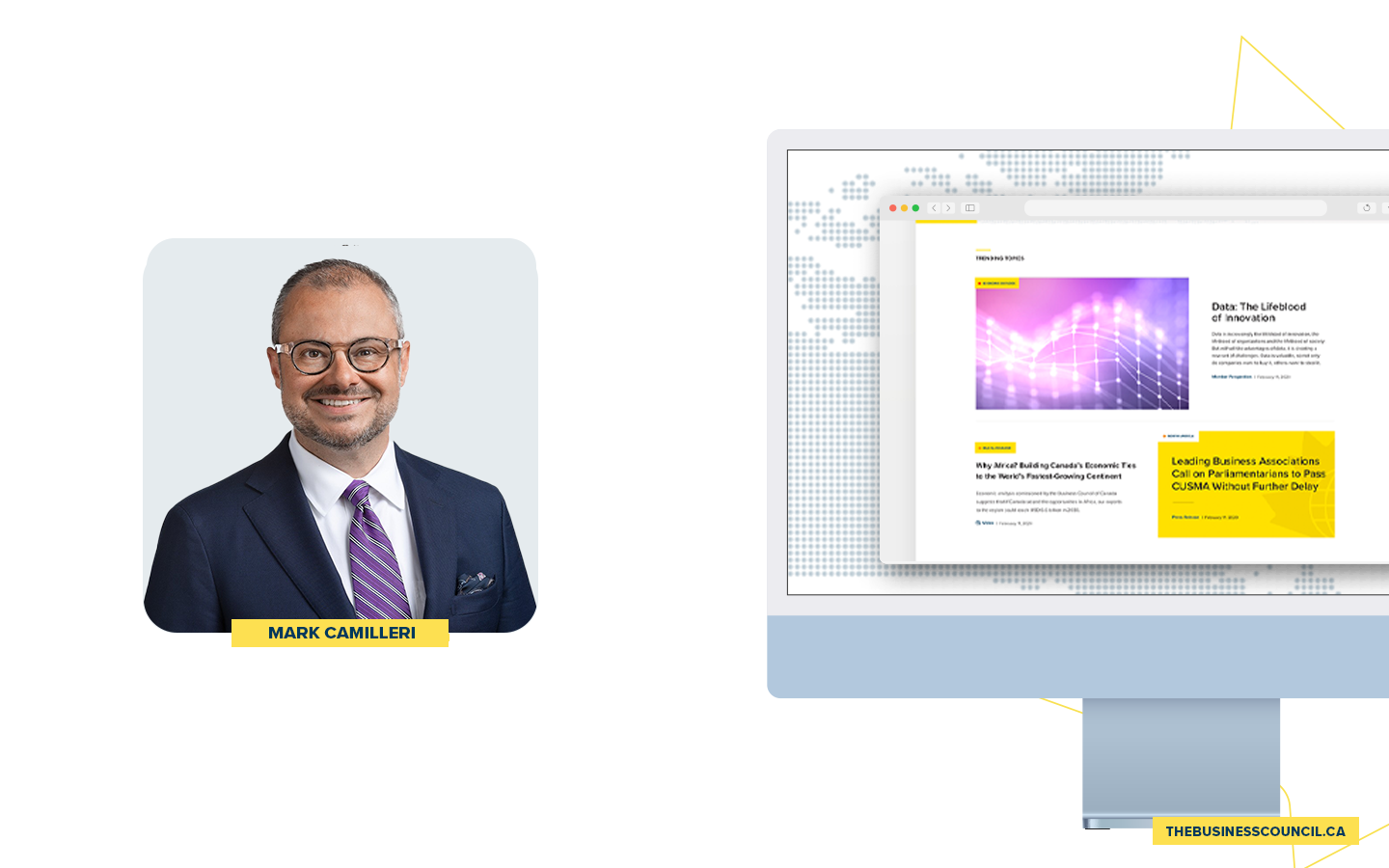As EU leaders visit Newfoundland, the message is clear: It’s time to step up, Canada
Today, Canada will wrap up a two-day Canada-EU Leaders Summit in St. John’s, Newfoundland, the first such meeting since June 2021. Given the strategic importance of Canada’s relationship with the EU, Canadians should pay close attention to its outcomes.
For the EU, its relationship with Canada represents a pivotal opportunity in the midst of growing global uncertainty: a stable, like-minded partner with enormous reserves of energy and critical minerals that is a friendly alternative to other authoritarian sources of these goods. One problem? Canada’s seeming inability to capitalize on this pressing demand.
The EU is one of Canada’s major trading partners—its third-largest, in fact, after the United States and China. The Canada-EU Comprehensive Economic and Trade Agreement (CETA), sits at the heart of this trade relationship and is, by conventional measures, working well. Trade has increased by over 50 percent since the agreement’s signing in 2016, with a greater participation of companies, especially SMEs.
Yet for all this success, the potential for Canadian businesses in the EU market (the world’s second-largest economy) remains—as it has for decades—largely untapped. Current developments in the EU offer significant opportunities for Canadian companies to expand their reach.
For one, the EU is embarking on a historic transition to a low-carbon and digital economy, a process that is nothing short of a continental re-industrialization. Essential to its success is access to vast amounts of critical minerals. Having recently experienced the weaponization of its energy and critical mineral supply, a key part of the EU’s new economic security strategy is to secure a reliable supply of the critical minerals it requires for its green transition. While the EU has recently put forward ambitious legislation to significantly increase its domestic sourcing of key raw materials by 2030 (10 percent from extraction, 40 percent from processing, and 25 percent from recycling), it will still rely on imports from other countries for years to come.
Canada is viewed by the EU as a reliable and like-minded partner, so it should come as no surprise that the EU wants to develop stronger ties with Canada. It’s time for Canada, which shares the EU’s commitment to the energy transition, to step up and produce more of what the EU and other allies need. While it has been slow to roll out, the Canadian government’s 2022 Critical Minerals Strategy (backed by a nearly $4 billion funding commitment) does offer the potential to align Canadian and EU interests. Canada must find a way to improve its complex permitting process and bring new strategic projects online faster—it is essential for Canada’s international credibility.
In addition to critical minerals, the EU requires access to reliable energy supplies. While Canada does not export LNG directly to the EU, it can and should do more to increase LNG exports (especially to the Indo-Pacific) to help alleviate the pressure of global supplies for the EU. Beyond this indirect assistance, there are promising opportunities for other Canadian energy exports (such as hydrogen) and, in light of the current EU nuclear renaissance, the Canadian nuclear industry.
The EU is also looking to develop its own clean tech sector. Canada is a leader in the clean tech industry and a pioneer of key emission-reducing technologies, including carbon capture and storage (CCS) systems and small modular reactors (SMRs). Engagement with the EU is critical to ensure that Canadian technologies and services are seen as part of the EU solution. Canadians should be paying attention to the signals coming out of this summit on such opportunities. Particular attention should be given to the state of Canada’s application to become an associate member of Horizon Europe (the EU’s flagship funding program for R&D with a budget of more than 95 billion euros) which offers a direct pathway to many of these economic opportunities.
Coupled with the EU’s re-industrialization efforts are the rules the EU is adopting to ensure that its products and goods are produced responsibly and sustainably. As the EU imposes higher environmental social and governance (ESG) standards on its own industries, it has developed tools (such as the Carbon Border Adjustment Mechanism) that will effectively exclude third-country products that do not meet these standards. In some cases, European businesses and importers will be forced to alter their suppliers to comply with new EU rules. Given such supply chain disruption, Canadian companies that can demonstrate their own high ESG standards stand to benefit from this exceptional opportunity for a deeper integration with the EU market.
In addition to the opportunities afforded by the EU Single Market, the summit will feature talks on cooperation on digital regulation such as AI and cyber-security. The EU is a regulatory powerhouse and its rules, particularly in digital regulation, are often exported abroad, or are otherwise complied with by foreign companies including Canadian ones (think, for example, of the EU’s General Data Protection Regulation). As both Canada and the EU create their own rules on emerging industries like AI, they should ensure these rules are aligned and create opportunities for partnership. The summit offers the chance to establish key priority areas of cooperation.
In the present geopolitical context, the Canada-EU relationship is unusual in that it offers an oasis of stability. Yet beyond diplomatic niceties, it also offers the promise of real and viable growth for Canadian businesses. This is indeed something to celebrate and for Canadians to pay more attention to.











